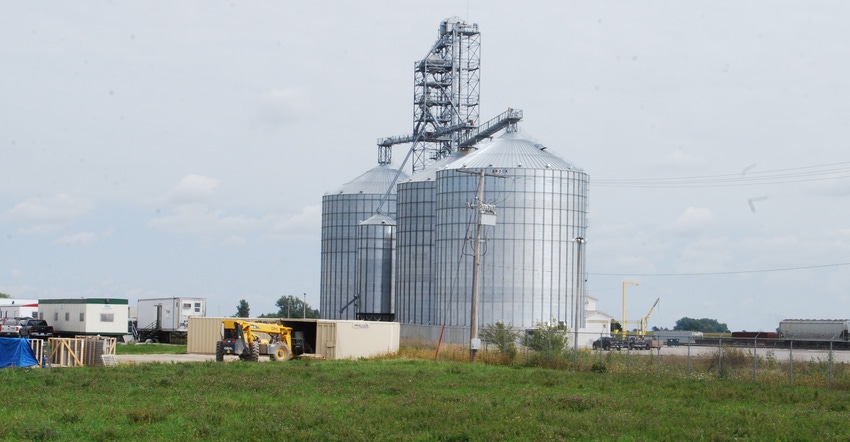August 24, 2018

One of the key features of the Tax Cuts and Jobs Act passed in December is the Section 199A deduction. This federal income tax deduction is generally available to sole proprietors, owners of pass-through businesses and trusts.
Because TCJA lowered the highest tax rate for C corporations from 35% to 21%, Congress created the 199A deduction to benefit the rest of U.S. businesses.
Subject to many limitations, 199A generally allows taxpayers to take as a deduction from taxable income up to 20% of their “qualified business income.” The concept is straightforward, but the rules are complicated.
IRS guidance interpreting many of the details came Aug. 8, which answered many questions and left others for another day.
Although taxpayers can rely on the proposed regulations until final regulations are enacted, the final rules could be different. Here’s a look at key highlights from the recently issued IRS guidance:
• Work closely with your tax adviser. It’s important to work with your tax adviser to understand the impact of the new law on your business. IRS has determined that the annual reporting burden for the new 199A deduction alone will be 25 million hours. TCJA is the most significant change to the tax code since 1986. This means your tax return preparer will have additional questions for you when preparing your 2018 return. It would be a good idea to schedule an appointment with your tax adviser sooner, rather than later, to understand how these changes may impact your business decisions moving forward.
• Rental income eligibility for deduction. Many questions remain as to when rental income is eligible for the tax deduction. Section 199A requires that income eligible for the 199A deduction must come from a “trade or business.” Although that sounds like a simple phrase, “trade or business” is not consistently defined in the tax law. Many have been waiting for IRS to provide a definition of that phrase for purposes of the 199A deduction. Instead, the proposed regulations provide that “trade or business” will be defined by existing case law and administrative guidance.
Unfortunately, there is no bright-line definition of what types of activities constitute trades or businesses. The courts make these determinations on a case-by-case basis after a detailed factual inquiry. It is often unclear whether some rental income, especially from different types of farm leases, is income from a trade or business, or from an investment. The proposed regulations do not answer these questions. For more detailed information on this issue, read this post.
• Income from most self-rentals will be eligible for the deduction. The proposed regulations state that the rental of property to a related trade or business is automatically treated as a trade or business if the rental and the other trade or business is commonly controlled. In other words, taxpayers can continue to keep their farmland separate from their operating entity, and the rent paid by the operating entity to the owner of the farmland should be eligible for the 199A deduction, even if the rental would not otherwise qualify as a “trade or business.”
• Proposed regulations create an aggregation system for “grouping” trades and businesses. The tax law sometimes allows taxpayers to “group” activities for purposes of determining tax liability. Grouping can provide taxpayers more favorable results than if they treated the grouped activities separately. Many taxpayers already group activities in response to the passive activity loss rules and the net investment income tax rules.
The proposed 199A rules introduce a new option to aggregate trades and businesses to maximize their 199A deduction. This aggregation would be separate from any grouping already in place for other tax provisions.
Taxpayers with income below statutory thresholds ($157,500 for singles and $315,000 for married, filing jointly) are generally eligible for the 199A deduction without limitation. When income climbs above that amount (plus a phaseout), however, the deduction is limited to 50% of W-2 wages paid or 25% of W-2 wages paid, plus 2.5% of the unadjusted basis of certain depreciable property used in the business. The aggregation rules allow taxpayers to group related trades and businesses for purposes of applying the W-2 wages or property limitation to potentially maximize their 199A deduction.
• Proposed regulations provide no guidance for the cooperative deduction. The proposed regulations state that the IRS is continuing to study the new deduction for agricultural cooperatives and their patrons under IRC § 199A(g). This deduction was implemented as a fix to the so-called grain glitch. A number of questions remain regarding how this deduction will work. IRS says it intends to issue separate proposed regulations describing rules for applying this deduction later this year.
• S corporation shareholders and partners can take the 199A deduction in 2018 for business income generated by an entity with a fiscal year ending in 2018. Some questions existed as to whether a taxpayer receiving flow-through income from a fiscal-year entity that began in 2017 but ended in 2018 would be entitled to the 199A deduction for the entire amount of income received in 2018. The proposed regulations clarify that the owner of a pass-through business can take the 199A deduction in 2018 for any business income generated by an entity with a fiscal year ending in 2018.
• Proposed regulations significantly reign in the definition of specified service trades and businesses. Under the new law, taxpayers in a specified service trade or business (SSTB) are ineligible for the deduction if their income exceeds income thresholds and phaseout ranges ($157,500 for singles and $315,000 for married, filing jointly). This limitation is designed to prevent taxpayers from shifting wage-like income (which is not eligible for the deduction) to business income.
The fields of health, law, accounting, actuarial science, performing arts, consulting, athletics, financial services, brokerage services or investment management are automatically SSTBs, as is “any trade or business where the principal asset of such trade or business is the reputation or skill of the owner or one or more of its employees.”
Interpreted broadly, the latter phrase had the potential to swallow up all service businesses. In the proposed regulations, IRS significantly curbed the phrase by limiting its meaning to a list of specific situations like endorsing a product or licensing one’s image. The regulations also clarify that the SSTB limitation does apply to veterinarians but does not apply to real estate agents and brokers, insurance agents or property managers.
Tidgren is an attorney and director of the Center for Ag Law and Taxation at ISU. Contact her at [email protected].
About the Author(s)
You May Also Like






